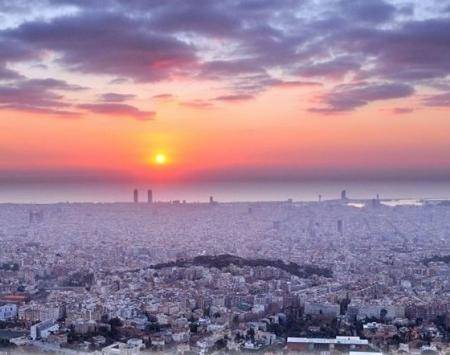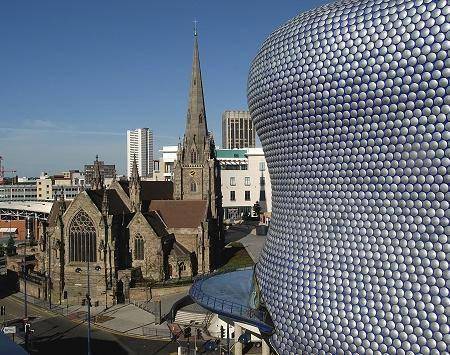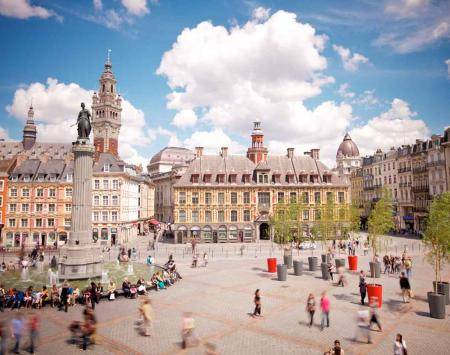Getafe
Urban povertyEPIU - Energy Poverty Intelligence Unit
One out of ten dwellings in Spain are affected by energy poverty. From Getafe, we are launching this innovative project in order to identify energy vulnerability, through an intelligent tool for advanced analysis. We will provide, by means of a cross-sectional public service unique in Europe, customized solutions adapted to the needs of citizens, improving their quality of life and thermal comfort, with emphasis on sustainability.
Getafe's main challenge is to identify and fight hidden energy poverty (HEP). People affected by energy poverty in Getafe could be between 15 and 30% although only 1991 families seek support from the City Council. Energy Poverty is usually defined by the % of rent that a household dedicates to energy consumption, but for EPIU energy poverty implies people unable to keep households in a comfortable temperature whether it is because they cannot pay for a sufficient amount of energy for its domestic needs and/or because it is forced to allocate an excessive part of its income. This situation is aggravated by the economic situation of Getafe, whose average income is 5.071 € lower than the rest of the Madrid Region. In addition, 52% of its current housing stock was built between the 60s and 80s with low quality and energy efficiency standards and without heating systems in most cases. The city has two Urban Deprived Areas and Neighborhoods declared as critical areas for the rehabilitation and regeneration by Madrid’s regional government. These two areas have an increased incidence of Energy Poverty and are inhabited mainly by elderly and migrants.
Getafe wants to develop the ENERGY POVERTY INTELLIGENCE UNIT (EPIU) to identify, attend and fight Hidden Energy Poverty (HEP) with a pilot project in its two most vulnerable areas: Las Margaritas and La Alhóndiga. Innovation lies in the change in EP attention beyond monetary poverty: from reaction to prevention using data. EPIU is based on a data analytics system that collects information on energy consumption, income and other factors determining EP. The system will cluster EP vulnerable groups by their sociodemographic and physical characteristics for 3 scales: home, building, and neighborhood. A cross-disciplinary work team composed of several areas of the MUA and its housing company will be in charge of energy vulnerability cases detected by the tool and will value the implementation of tailor-made solutions and the compensatory engagement actions. Tailor Made Solutions will be developed for both heat and cold energy poverty at the three scales for a selection of Energy Poverty affected homes, buildings and neighborhoods.
- Ayuntamiento de Getafe
- EMSV - Municipal Land and Housing Company of Getafe - public enterprise
- UC3M - Carlos III University of Madrid
- UPM - Universidad Politécnica de Madrid
- ACA - Environmental Science Association - private organisation
- FN - Naturgy Foundation - private organisation
- CR - Red Cross - private organisation
- FLC - Construction Labour Foundation - private organisation
- Khora Urban Thinkers - private enterprise
Energy vulnerability will be significantly reduced in both urban areas where EPIU will be implemented improving the neighbors’ life quality and thermal comfort and favoring their autonomy. The project will quantify and qualify identified Hidden Energy Poverty (HEP) in order to gain a deeper understanding of the problem and to determine which public interventions work better and under which circumstances. Citizens will be more aware about risks, negative impacts, public services available and potential actions to reduce energy vulnerability in their homes, buildings and neighborhoods. EPIU will improve the collaboration between working areas of the city council and enhance civil servants’ skills. Finally, homes, buildings and neighborhoods will be more energy efficient, contributing to a more responsible use of energy.
March 2020: Conceptual design of the Data Analytics System completed. This conceptual design will constitute a first characterization of Hidden Energy Poverty in Getafe.
November 2020: First version of Data Analytics System deployed.
February 2021: New Service for energy poverty attention designed. A transversal unit of different City Council departments will be involved in developing these new services.
July 2020: Call for architectural competition for cooling neighborhoods interventions launched and participatory process designed.
March 2021: Programs of tailor-made solutions for homes and buildings designed and characterized for each cluster.
October 2021: Tailor made solutions completed for neighborhood scale. The urban intervention will focus on heat energy poverty mitigation and citizen awareness mechanisms for both heat and cold energy poverty.
December 2021: Home tailor-made solutions completed.
April 2022: Building tailor-made solutions completed.

















